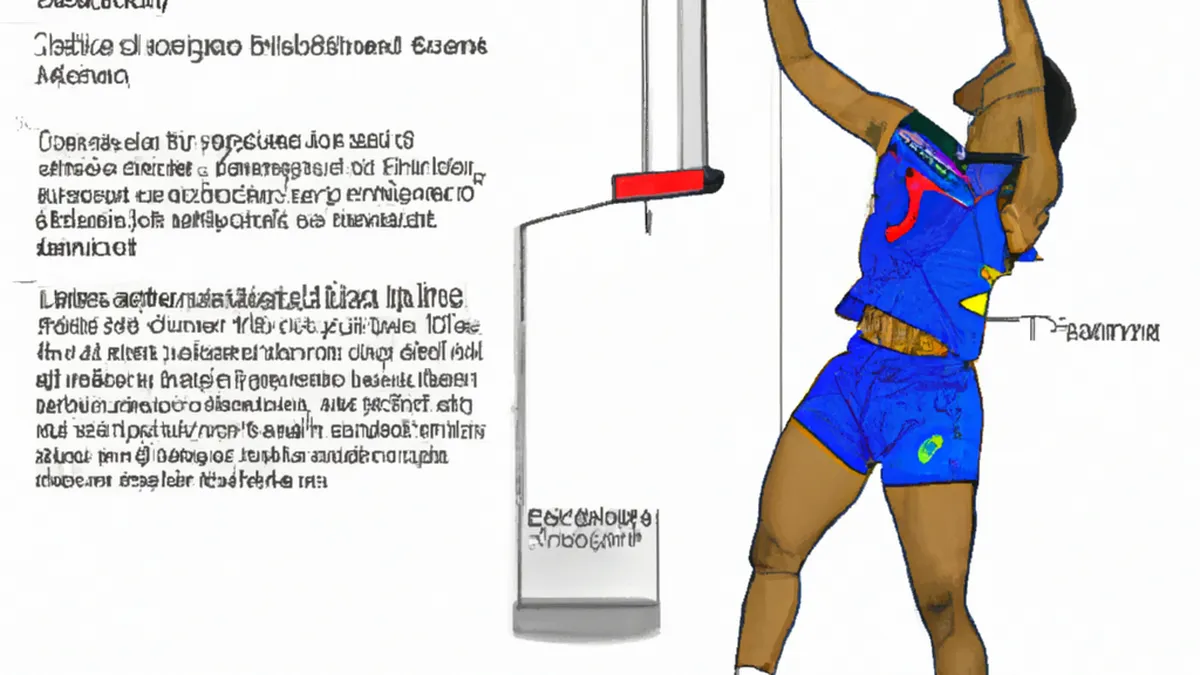Skyrocket Your Volleyball Performance with Jump Training
Techniques for Improving Vertical Leap for Volleyball Players
Volleyball demands explosive movements and agility. A crucial skill for volleyball players is the vertical leap. Higher jumps provide significant advantages when spiking or blocking shots. You can improve your vertical leap with several techniques. This blog offers effective tips, valuable advice, and benefits of enhancing your vertical jump.
Strength Training for Power
Strength training increases your vertical leap. Focus on exercises targeting your legs and core. Here are effective exercises:
Squats
Squats build muscle in your quadriceps, hamstrings, and glutes. Use proper form to maximize benefits. Start with bodyweight squats, then gradually add weights. Aim for three sets of 10 to 15 repetitions.
Deadlifts
Deadlifts strengthen your posterior chain, crucial for jumping. Use a barbell or dumbbells. Begin with lighter weights to ensure proper form. Aim for three sets of 8 to 10 reps.
Lunges
Lunges enhance balance and coordination while strengthening your legs. Perform forward, backward, and side lunges for a well-rounded workout. Complete three sets of 10 to 12 lunges on each leg.
Plyometric Training
Plyometric exercises develop explosive power. These workouts focus on quick, powerful movements. Incorporate the following plyometric drills:
Box Jumps
Box jumps improve your explosive power. Find a sturdy box or platform. Stand in front and jump onto the box. Aim for three sets of 8 to 10 jumps. Rest for a minute between sets.
Depth Jumps
Depth jumps enhance reactive strength. Stand on a box, step off, and immediately jump vertically upon landing. Perform three sets of 6 to 8 depth jumps. Focus on your landing technique.
Jump Squats
Jump squats combine strength and plyometric training. Start in a squat position and jump as high as possible. Land softly and return to the squat. Complete three sets of 10 to 12 jump squats.
Flexibility and Mobility
Flexibility and mobility significantly improve your vertical leap. Enhancing your range of motion allows better jumping mechanics. Here are techniques to improve flexibility:
Dynamic Stretching
Incorporate dynamic stretching before workouts. Leg swings and arm circles work effectively. Perform these stretches for 5 to 10 minutes to warm up your muscles.
Static Stretching
After workouts, focus on static stretching. Stretch your hamstrings, quadriceps, and calves. Hold each stretch for 20 to 30 seconds to promote muscle recovery.
Foam Rolling
Foam rolling releases muscle tension. Use a foam roller on your legs and back. Spend 5 to 10 minutes rolling out tight areas after workouts.
Consistency and Recovery
To improve your vertical leap, consistency is essential. Create a structured training plan and stick to it. Train on strength, plyometrics, and flexibility at least three times weekly. Additionally, prioritize recovery.
Listen to Your Body
Pay attention to how your body feels. If you experience pain or discomfort, take a break. Rest days are crucial for recovery and muscle growth.
Hydration and Nutrition
Stay hydrated and consume a balanced diet. Proper nutrition fuels your workouts and aids recovery. Focus on lean proteins, whole grains, fruits, and vegetables.
Sleep
Aim for 7 to 9 hours of sleep each night. Quality sleep supports muscle recovery and overall performance. Establish a bedtime routine to improve sleep quality.
Benefits of a Higher Vertical Leap
Improving your vertical leap offers numerous benefits for volleyball players. First, a higher jump enhances your ability to spike effectively. You can reach higher and hit with more power. Second, it improves your blocking ability. A higher jump helps you intercept opposing spikes more effectively.
Additionally, a higher vertical leap boosts your overall athleticism. You will develop better coordination, balance, and agility. These skills translate to improved performance on the court. Finally, the confidence gained from a higher jump positively impacts your game.
Conclusion
Improving your vertical leap is essential for excelling in volleyball. Focus on strength training, plyometrics, flexibility, and consistency. Incorporate these techniques into your routine for maximum results. Prioritize recovery and nutrition to support your progress. With dedication and effort, you can elevate your game and become a more formidable player on the court.
Below are related products based on this post:
FAQ
What types of strength training exercises should volleyball players focus on to improve their vertical leap?
Volleyball players should focus on exercises that target the legs and core, such as squats, deadlifts, and lunges. These exercises help build muscle strength, which is crucial for enhancing vertical leap performance.
How can plyometric training benefit my vertical leap for volleyball?
Plyometric training develops explosive power through quick, powerful movements. Incorporating drills like box jumps, depth jumps, and jump squats can significantly enhance your ability to jump higher, which is essential for spiking and blocking in volleyball.
What role does flexibility play in improving vertical leap?
Flexibility and mobility enhance your range of motion, allowing for better jumping mechanics. Techniques such as dynamic stretching before workouts and static stretching afterward are crucial for improving flexibility and, consequently, your vertical leap.















Post Comment